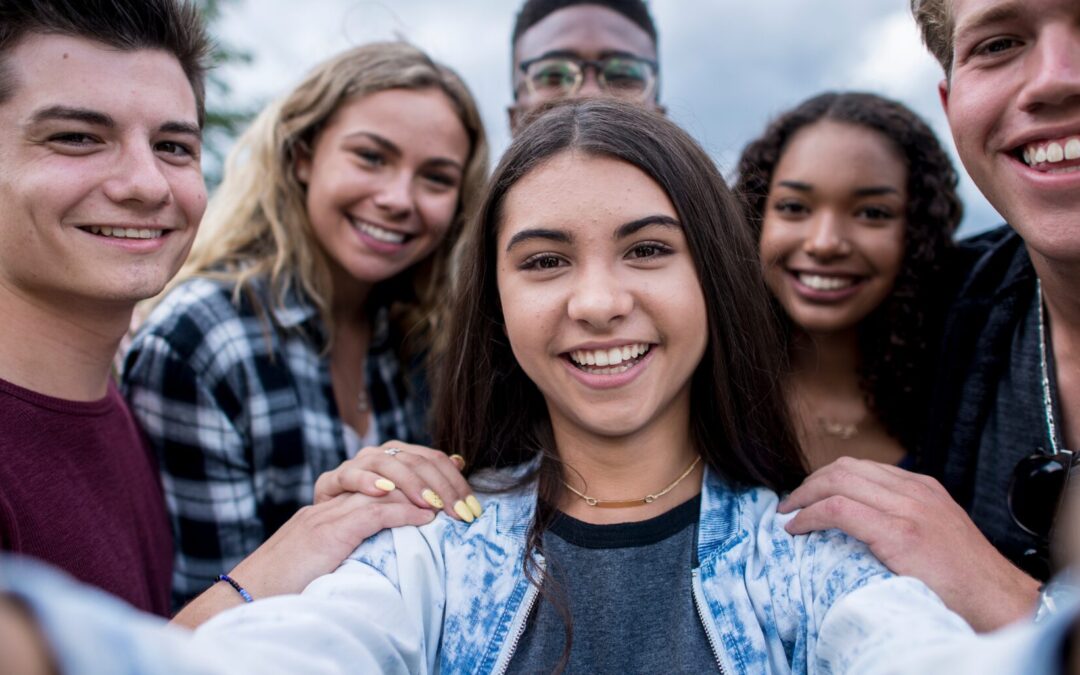Our children are Richmond’s future – their bright minds, boundless energy, and infectious enthusiasm hold the promise of a vibrant tomorrow. But sometimes, that future can be clouded by the shadows of substance abuse.
Here at Proactive Behavioral Services, we understand the unique challenges young people face, and we want to be a resource for parents, guardians, and young people themselves.
In this blog post, we’ll explore the landscape of substance abuse among youth in Richmond, focusing on both prevention and treatment options.
Understanding the Risks: Why Teens and Young Adults are Vulnerable
The teenage years and young adulthood are a time of immense change.
From navigating social pressures to developing a sense of identity, young people are constantly evolving. This can make them more susceptible to substance abuse for a number of reasons:
- Brain Development: The teenage brain is still under development, especially the areas that control decision-making and impulse control. This can make it harder for young people to resist peer pressure or make healthy choices.
- Experimentation and Risk-Taking: Teens naturally experiment with new things, and this can sometimes include substance use.
- Coping Mechanisms: Some young people turn to drugs or alcohol to cope with difficult emotions, such as stress, anxiety, or depression.
Spotting the Signs: Early Intervention is Key
Substance abuse in young people can manifest differently than in adults. Here are some warning signs to be aware of:
- Changes in Behavior: Sudden mood swings, withdrawal from social activities, or a decline in academic performance could be red flags.
- Physical Changes: Bloodshot eyes, changes in sleep patterns, or weight fluctuations can be indicators of substance use.
- Secrecy and Lying: If your child is being secretive about their activities or lying about their whereabouts, it might be a cause for concern.
Prevention is Paramount: Building a Strong Foundation
The good news is that there’s a lot we can do to prevent substance abuse in our youth.
Here are some key strategies:
- Open Communication: Create a safe space for open communication with your children. Talk to them about the dangers of substance abuse in a way that’s age-appropriate and honest.
- Positive Reinforcement: Focus on celebrating your child’s achievements and strengths. This will help build their self-esteem and make them less likely to turn to substances for validation.
- Healthy Habits: Encourage healthy lifestyle choices, like regular exercise and a balanced diet. These habits can contribute to overall well-being and reduce the risk of substance use.
- Be a Role Model: Children are constantly observing our behavior. Be mindful of your own alcohol and drug use, and strive to model healthy coping mechanisms.
Addressing Addiction in Youth: Treatment Options in Richmond
If you suspect your child may be struggling with substance abuse, there’s help available. Here are some resources in Richmond, VA:
- School Counselors: Many schools have counselors who specialize in substance abuse prevention and intervention.
- Treatment Centers: Several treatment centers in Richmond offer programs specifically designed for young people. These programs often incorporate family therapy and address the underlying causes of addiction.
- Support Groups: Connecting with other young people who are going through similar experiences can be incredibly helpful. Support groups offer a safe space to share struggles and find encouragement.
- The Richmond Youth Coalition ([insert website or phone number]): This organization provides a variety of resources and programs aimed at preventing substance abuse among youth in Richmond.
Here are some prevention programs and treatment options for young people in Richmond, VA:
Prevention Programs:
- The Richmond Youth Coalition (https://www.ci.richmond.ca.us/1074/Richmond-Youth-Council): This organization offers a variety of evidence-based prevention programs in Richmond schools. Programs like “Project ALERT” (Alternatives to Living Recklessly) and “Supporting Effective Choices” educate young people about the dangers of substance abuse and equip them with healthy coping mechanisms.
- The Virginia Department of Education’s Substance Abuse Prevention Resource Center (https://www.doe.virginia.gov/programs-services/student-services/prevention-strategies-programs/alcohol-drug-tobacco-use) provides a wealth of resources for parents, educators, and youth workers. Here you can find information on prevention strategies, curriculum resources, and professional development opportunities.
- The Boys & Girls Clubs of Metro Richmond (https://www.bgcmr.org/) offers after-school programs that promote healthy activities, leadership skills, and positive decision-making. These programs provide a safe space for young people to develop social connections and build self-esteem, reducing the risk of substance abuse.
Treatment Options:
- Richmond Behavioral Health Authority (RBHA) – Children’s Services (https://www.rbha.org/) This agency provides a variety of mental health and substance abuse treatment services for adolescents, including individual and family therapy, outpatient programs, and crisis intervention services.
- VCU Health Children’s Hospital – Adolescent Medicine Clinic (https://pediatrics.vcu.edu/divisions/adolescent-medicine/) This clinic offers comprehensive care for adolescents, including substance abuse evaluation and treatment services. They also provide support and resources for families.
- Inova Behavioral Health Services – Richmond (https://www.inova.org/our-services/inova-behavioral-health-services) This outpatient treatment center offers programs specifically designed for adolescents struggling with substance abuse. They utilize evidence-based approaches, including cognitive-behavioral therapy (CBT) and motivational interviewing (MI), to help young people develop healthy coping mechanisms.
Additional Resources:
- The National Institute on Drug Abuse (NIDA) for Teens (https://nida.nih.gov/research-topics/parents-educators) This website provides a wealth of information for teens about substance abuse, including the dangers of different drugs, tips for resisting peer pressure, and resources for getting help.
- The National Council on Alcoholism and Drug Dependence (NCADD) – Helpline (1-800-622-2255) This confidential helpline offers 24/7 support and information for parents and teens struggling with substance abuse.
Remember, you are not alone.
If you’re concerned about your child’s substance use, don’t hesitate to reach out to one of these resources. Early intervention is key to successful recovery, and there is help available.
Among the options mentioned, Proactive Behavioral Services is also here to support you and your family too.
Reach out to us today.
We're Here Whenever You Need Us
Phone
Open Hours
Mon - Wed: 10AM - 7PM
Thu - Sat: 08AM - 6PM
Address
4915 Radford Ave #206, Richmond, VA 23230

